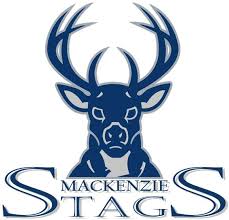- Mackenzie
- Overview

Our Academics & Electives
-
We draw upon the expertise of our educators and work together to create models of outstanding achievement in every classroom. Through implementing high-quality instructional materials and transforming the academic culture in our schools, we challenge and inspire our students to thrive in the world. With a wide variety of academics and enrichment opportunities aligned with state standards, we support students in unlocking their potential as they extend their skills and talents beyond the classroom. Our core curriculum includes:
· English Language Arts - We are committed to nurturing and developing a strong literacy foundation for all students in the early school years by implementing literacy instructional frameworks that prepare students to become independent readers and writers.
· Math - The mathematics curriculum seeks to ensure mathematical competence and confidence in students in mathematics-rich classroom environments.
· Science - Classroom experiences in science are connected to real-world phenomena and provide opportunities to engage in science and engineering practices through exposure to STEM-related career pathways.
· Social Studies - Students gain the content knowledge, intellectual skills, and core democratic values necessary for fulling their civic duties in a participatory democracy and effectively engaging in our global society.
· World Languages - Students develop effective communication in at least one world language other than English as well as cultural competence to help all our students become better-equipped global citizens.
-
-
Math: Elementary math encompasses essential first steps on the path to understanding numbers and their uses, patterns, and relationships. Along the way, students learn the skills of counting, estimation, rounding, representing data, and measurement. Middle School students learn how to multiply, divide, subtract and add fractions. They'll also work with square roots and learn how to find the least common denominator and greatest common factor.
-
Reading: Is a complex process, involving skills such as decoding, making predictions and asking questionsThe goal of middle school reading curriculum is to build on the lessons learned in elementary school and extend literary knowledge for improvements in reading and writing skills.
-
Science: Is a system of observations and experiments used to gain knowledge about how the universe works. In science class, students have the opportunity to learn about the properties of a range of materials, studying size, weight, and shape. Middle school students should conduct experiments, use tools to gather and organize data, and learn how to make graphs to present their findings.
-
Social Studies: Elementary social studies curriculum should provide students with the basic elements of geography, history, civics and economics, and introduce the three branches of the U.S. government. Middle School focuses on geography lessons, citizenship (including rights and responsibilities), government (federal and state), civics and economics, the right to vote and political systems around the world.
-
Algebra 1 (8th Grade): Eighth grade math focuses on linear equations, linear functions, and systems of linear equations, which are used to show the relationship between two variables.
-
-
-
Art: Our program has the potential to help improve a student's memory and concentration skills, develop decision-making and critical thinking skills, enhance communication and listening skills, but also encourage focus and discipline. An art education can also help a student to improve self-esteem and social skills.
-
Physical Education: provides cognitive content and instruction designed to develop motor skills, knowledge, and behaviors for physical activity and physical fitness. Supporting schools to establish physical education daily can provide students with the ability and confidence to be physically active for a lifetime.
-
Spanish: Students learn basic grammar and sentence construction. In addition to classroom lectures, elementary Spanish courses usually require students to attend language labs. Class assignments focus on the development of vocabulary, reading, writing and conversational skills.
-
Journalism/Yearbook: In this course students will gain skills in one or more of the following areas: page design, advanced publishing techniques, copy writing, editing and photography while producing a creative, innovative yearbook which records school memories and events.
-
Music: Classes can teach students to read and write music, to sing and play instruments, or focus on the history of music. This instruciton seeks to develop children's musical skills, expand their interpretative abilities and increase their overall appreciation of music.
-

